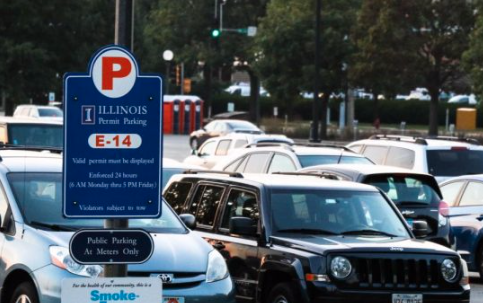Archived info - previous project title and description
This project was originally called "Reduce F&S Vehicle Idling" and focused on the idling reduction efforts that occurred in the early 2010's.
Previous description:
The Facilities & Services fleet vehicles have a tracking program installed which downloads vehicle usage data with every fueling visit. This data is being analyzed and shared with F&S directors. The directors work with their staff to educate and implement an idling reduction program.
Previous background:
A Facilities and Services Vehicle Idling Policy has been put in place. According to the policy, all vehicles should be turned off when not in use or when the driver leaves the unit for any length of time. The only anticipated exceptions are as follows:
- In the event of use of a power tailgate or other accessory when the electrical system alone would not support its operation; such as in cold weather or low electrical supply conditions.
- In extreme winter weather situations where a vehicle not left idling would create an operational safety problem such as severe fogging or icing of windshields (personal comfort alone would not qualify for this exception.
- For power take off (PTO) applications.
- Police K9 or Animal Control vehicles may remain running to maintain a safe climate for animals.
Employees using University vehicles may idle their vehicles during the initial morning warm-up (no more than 10 minutes); however, any time they exit their vehicle after that point, engines should be shut down.



 Schedule Time: Our List of Sustainability Courses!
Schedule Time: Our List of Sustainability Courses!